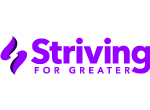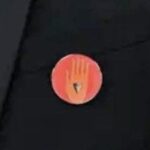Dr. Kristin Small, an anatomy professor and obstetrician from Australia, is advocating for changes to anatomical terminology she deems “irrelevant and misogynistic.”
She believes that certain body parts, such as the Adam’s apple and Achilles tendon, should be renamed because their current names reflect historical male figures and are not inclusive of all genders.
As a medical professional and educator, Dr. Small feels it’s time to update the language used in anatomy to better represent everyone. She argues that terms derived from “men, kings, and (male) gods” should be replaced with more universally applicable names that relate to all individuals, regardless of gender.
During her teachings, Dr. Small encourages her students to use the established names in exams but educates them about alternative terms that she believes are more appropriate and less rooted in historical biases.
Dr. Nisha Khot, a council member of the Royal Australian and New Zealand College of Obstetricians and Gynecologists, supports Dr. Small’s efforts.
She notes that many trainee doctors are eager to learn more relevant and inclusive language and are often surprised by the origins of certain medical terms.
One example discussed is the term “hysterectomy,” which stems from outdated beliefs about women’s emotional states and physical constitution. Dr. Khot advocates for replacing this term with “uterectomy,” a more anatomically accurate and neutral term that does not imply male superiority.
The movement for change, originally focused on women’s health, is gaining traction within the broader medical community. Dr. Khot emphasizes the importance of using language that is clear and understandable for both medical professionals and patients.
The effort to rename body parts extends beyond gender considerations to address the historical context behind medical terminology. For instance, the speculum, a gynecological instrument, was named after an American slave trader.
Advocates like Dr. Small and Dr. Khot seek to modernize medical language to be more respectful and reflective of contemporary values.
Dr. Kristin Small and other like-minded professionals are leading a movement to update anatomical terminology, aiming to make it more inclusive, relevant, and respectful of diverse identities.
They believe that embracing new terminology will contribute to improved communication and understanding in the medical field, benefiting both practitioners and patients alike.


